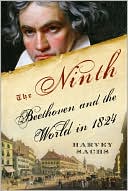Category Books
- Fiction Books & Literature
- Graphic Novels
- Horror
- Mystery & Crime
- Poetry
- Romance Books
- Science Fiction & Fantasy
- Thrillers
- Westerns
- Ages 0-2
- Ages 3-5
- Ages 6-8
- Ages 9-12
- Teens
- Children's Books
- African Americans
- Antiques & Collectibles
- Art, Architecture & Photography
- Bibles & Bible Studies
- Biography
- Business Books
- Christianity
- Computer Books & Technology Books
- Cookbooks, Food & Wine
- Crafts & Hobbies Books
- Education & Teaching
- Engineering
- Entertainment
- Foreign Languages
- Game Books
- Gay & Lesbian
- Health Books, Diet & Fitness Books
- History
- Home & Garden
- Humor Books
- Judaism & Judaica
- Law
- Medical Books
- New Age & Spirituality
- Nonfiction
- Parenting & Family
- Pets
- Philosophy
- Political Books & Current Events Books
- Psychology & Psychotherapy
- Reference
- Religion Books
- Science & Nature
- Self Improvement
- Sex & Relationships
- Social Sciences
- Sports & Adventure
- Study Guides & Test Prep
- Travel
- True Crime
- Weddings
- Women's Studies
The Ninth: Beethoven and the World in 1824 »

Authors: Harvey Sachs
ISBN-13: 9781400060771, ISBN-10: 140006077X
Format: Hardcover
Publisher: Random House Publishing Group
Date Published: June 2010
Edition: (Non-applicable)
Author Biography: Harvey Sachs
Harvey Sachs is a writer and music historian and the author or co-author of eight previous books, of which there have been more than fifty editions in fifteen languages. He has written for The New Yorker and many other publications, has been a Guggenheim Fellow and a Fellow of the New York Public Library’s Cullman Center for Scholars and Writers, and is currently on the faculty of the Curtis Institute of Music in Philadelphia. He lives in New York City.
Book Synopsis
“All men become brothers . . .
Be embraced, ye millions!”
The Ninth Symphony, a symbol of freedom and joy, was Beethoven’s mightiest attempt to help humanity find its way from darkness to light, from chaos to peace. Yet the work was born in a repressive era, with terrified Bourbons, Hapsburgs, and Romanovs using every means at their disposal to squelch populist rumblings in the wake of the French Revolution and Napoleon’s wars. Ironically, the premiere of this hymn to universal brotherhood took place in Vienna, the capital of a nation that Metternich was turning into the first modern police state.
The Ninth’s unveiling, on May 7, 1824, was the most significant artistic event of the year, and the work remains one of the most precedent-shattering and influential compositions in the history of music—a reference point and inspiration that resonates even today. But in The Ninth, eminent music historian Harvey Sachs demonstrates that Beethoven was not alone in his discontent with the state of the world. Lord Byron died in 1824 during an attempt to free Greece from the domination of the Ottoman empire; Delacroix painted a masterpiece in support of that same cause; Pushkin, suffering at the hands of an autocratic czar, began to draft his anti-authoritarian play Boris Godunov; and Stendhal and Heine wrote works that mocked conventional ways of thinking.
The Ninth Symphony was so unorthodox that it amazed and confused listeners at its premiere—described by Sachs in vibrant detail—yet it became a standard for subsequent generations of creative artists, and its composer came to embody the Romantic cult of genius. In this unconventional, provocative new book, Beethoven’s masterwork becomes a prism through which we may view the politics, aesthetics, and overall climate of the era.
Part biography, part history, part memoir, The Ninth brilliantly explores the intricacies of Beethoven’s last symphony—how it brought forth the power of the individual while celebrating the collective spirit of humanity.
The Washington Post - Michael Dirda
in a "postlude" Sachs recalls his own boyhood discovery…of Beethoven and touches on the composer's importance to him. Not just the Ninth, he concludes, but Beethoven's music in general "adds to the fullness when life feels good, and it lengthens and deepens the perspective when life seems barely tolerable. It is with me and in me. And I suppose that this book is a vastly oversized and yet entirely inadequate thank-you note to Beethoven." It's more than that. The Ninth isn't a profoundly scholarly work, but it will send readers to their CD players.
Table of Contents
Subjects
 Literary Criticism
Literary Criticism  European Literature
European LiteratureFiction Books & Literature
 Literary Criticism
Literary Criticism  Literary Movements
Literary MovementsEntertainment
 Music Books
Music Books  Classical Music
Classical MusicHistory
 European History
European History  General & Miscellaneous European History
General & Miscellaneous European HistoryNonfiction
 History
History  European History
European History
